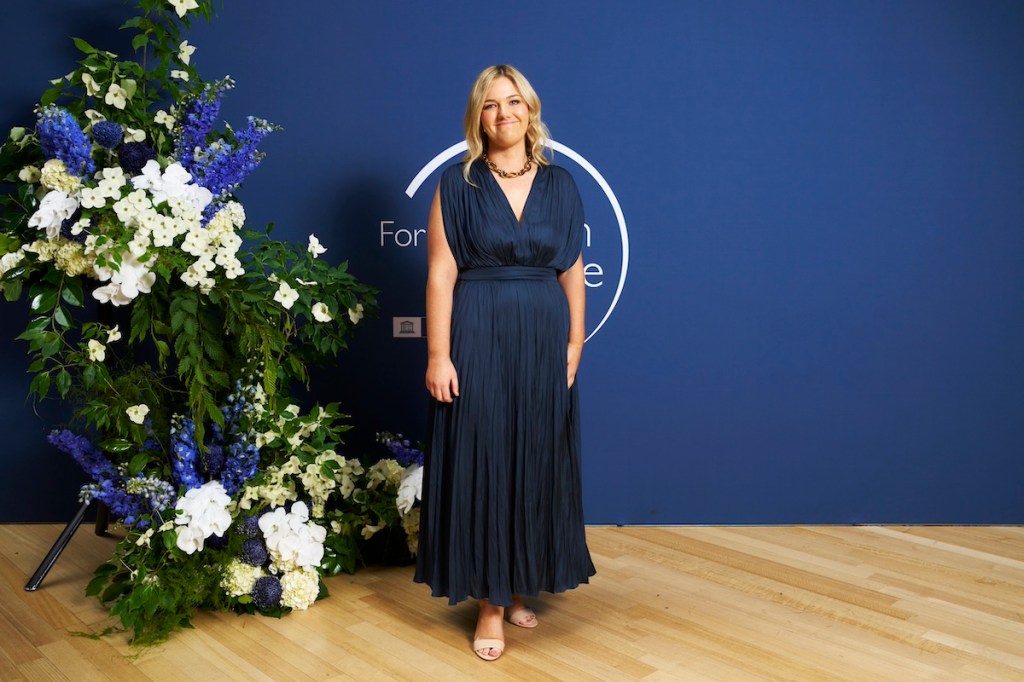On the 14th of November, L’Oréal-UNESCO For Women in Science celebrated and awarded five female scientists from Australia and New Zealand in Melbourne, Victoria. These standout early-career researchers received prestigious Fellowships and vital funding to fuel their groundbreaking work.
Each 2024 fellow has an incredible story of the way they found their fields, as well as the adversity they face as women in STEMM.
The list of outstanding fellows includes:
- Dr Emily Roycroft, Australian National University, ACT – Back from the brink: giving endangered Australian mammals a fighting chance at survival – While Emily always believed she’d become a doctor, she thought that would be in medicine, rather than academia. Australia has the highest rate of mammal extinction in the world, with 40 species lost since European colonisation of Australia in 1788. That rate would be even higher if not for the hundreds of islands around the coast of Australia which provide crucial sanctuaries for species which are extinct on the mainland. Emily’s research investigates the genetic health of these small remnant populations, to assess their risk of extinction and their suitability to ‘rewild’ or rehome in habitats on mainland Australia. It was on one of these islands in which Emily discovered a species that was once believed to be extinct.

- Dr Mengyu Li, University of Sydney, NSW – Sustainable production and consumption in an equitable world – Mengyu’s research calculates the true cost of global consumption, including food and energy, and its impact on climate. Mengyu also explores the link between happiness and climate change. She has developed advanced quantitative computer modelling to track the flow of goods through complex international supply chains, revealing the far-reaching consequences of wealth-driven consumption on communities and the environments in poorer regions. These results, and the recommendations which stem from them, are utilised globally. Mengyu will later explore the link between increased well-being, less consumption and a more sustainable future through the lens of degrowth.

- Dr Brittany Mitchell, QIMR Berghofer Medical Research Institute, QLD – The genetics behind mental health and how we treat depression – Brittany’s own mental health challenges in her formative teenage years are the inspiration behind her research into the genetics of depression and other mental health issues. Now, her research is targeted at understanding the genes influencing depression risk and treatment response, leading to more effective treatments in the future. Brittany aims to create individualised genetic risk scores – capturing a person’s individual likelihood of developing depression and even predicting which antidepressants are most likely to work for them.

- Dr Kaye Minkyung Kang, University of Sydney, NSW – Dirty carbon and a cleaner future: using microscopic technology to tackle a big problem – Kaye always loved drawing. Before scuba diving, she dreamed of being an artist. As she got older a certain professional pragmatism took over, but in a twist of fate Kaye says there’s still an artistic element to what she does now. Now her ‘art’ is made using nanotechnology, microscopic equipment that scratches surfaces to induce colourful reactions in certain elements. Kaye is discovering how we can convert carbon waste into more useful chemicals. The key is making that conversion process more efficient through the use of solar energy, rather than electricity.

- Dr Leah Smith, University of Otago, NZ – Harnessing the power of ‘good’ viruses in a post-antibiotic world – Experts estimate that by 2050, two million deaths each year could be attributed to antimicrobial resistance. The global rise of drug-resistant bacteria necessitates finding alternative strategies to treat complicated bacterial infections. In looking for solutions to the antimicrobial resistance crisis, Leah’s focus, in her role as a Research Fellow at the University of Otago in New Zealand, has turned to ‘phages’. Phages are viruses that only infect bacteria. Their specificity and effectiveness in killing bacteria make them an attractive solution against problematic infections.

Alongside their groundbreaking work, these five female scientists are fighting for greater representation in STEMM, to hopefully inspire more young girls and women to pursue their interests despite adversity.
Read the current issue of our digital magazine below:
- For more news and updates, subscribe to our weekly newsletter
- Follow us on Instagram
- Like us on Facebook
- Connect with us on LinkedIn

